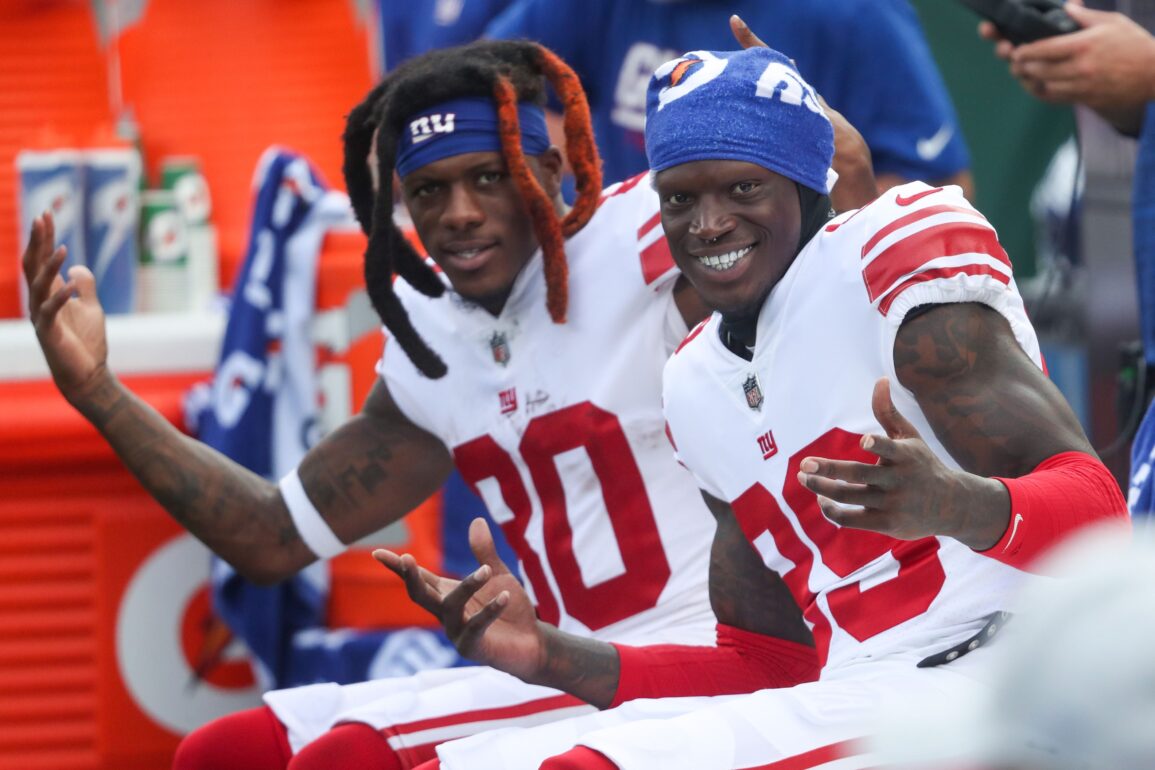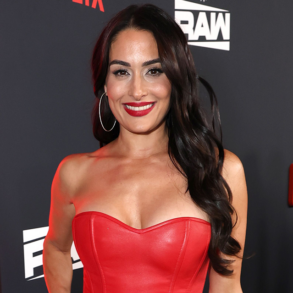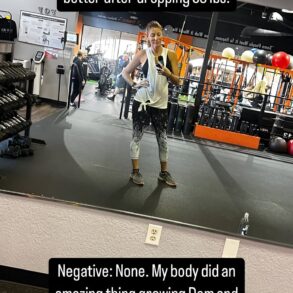Six years after a New Jersey high school wrestler was forced to cut his hair to compete in a match, sparking nationwide backlash in one of New Jersey’s most shameful moments, the hair of Black students and athletes continues to be an issue.
Since Andrew Johnson of Buena High School was forced to cut his locs in 2018, at least 23 states have passed their own CROWN Acts — laws to Create a Respectful and Open Workplace for Natural Hair — but Blacks still struggle for the freedom to wear our hair the way we want — in the workplace, schools and on athletic fields.
A national version of the CROWN Act, introduced by Rep. Bonnie Watson-Coleman (D-N.J.), passed the U.S. House last year, but failed in the Senate, where U.S. Sen. Cory Booker of N.J. has pushed for its passage.
In Texas, a judge last month ruled that a high school was not violating the state’s CROWN Act by punishing Daryl George, a Black teen, over the length of his locs. The student, who has been suspended, filed a lawsuit that was rebuffed by the court. The school’s policy is “rank discrimination,” Booker said. George’s family has said they intend to seek protection in federal court.
“An 18-year-old kid who was placed in in-school suspension, denied hot food and instructional materials because he wore his hair in locs,” Booker said. “They were simply saying that your natural form of hair is unacceptable. That is rank discrimination. These are the stories that have fueled my determination to join with a larger coalition around the country, trying to get laws in place that would prevent this kind of discrimination.”
In New Jersey and Massachusetts this past year, girls high school basketball players were told by referees to tie back their braids or sit out a game.
Booker cites studies that show that Black women are 50 percent more likely to be sent home from the workplace because of their hair, and that 80 percent of Black women have felt the need to change their hair from its natural state to fit within an office.
It leaves Blacks to ask a basic question:
“Why does my hair affect you?” NFL wide receiver and former Giants star Richie James said in an interview with NJ Advance Media. “Just let me express myself. That’s how I feel about that. It’s judging a book by its cover. My hair shouldn’t bother you. It’s a crazy thing that people can judge someone by their hair.”
We asked New Jersey athletes of color and different faiths — at pro, college and high school levels — to tell us what their hair means to them, especially at a time when even rules and laws designed to protect their rights aren’t working.
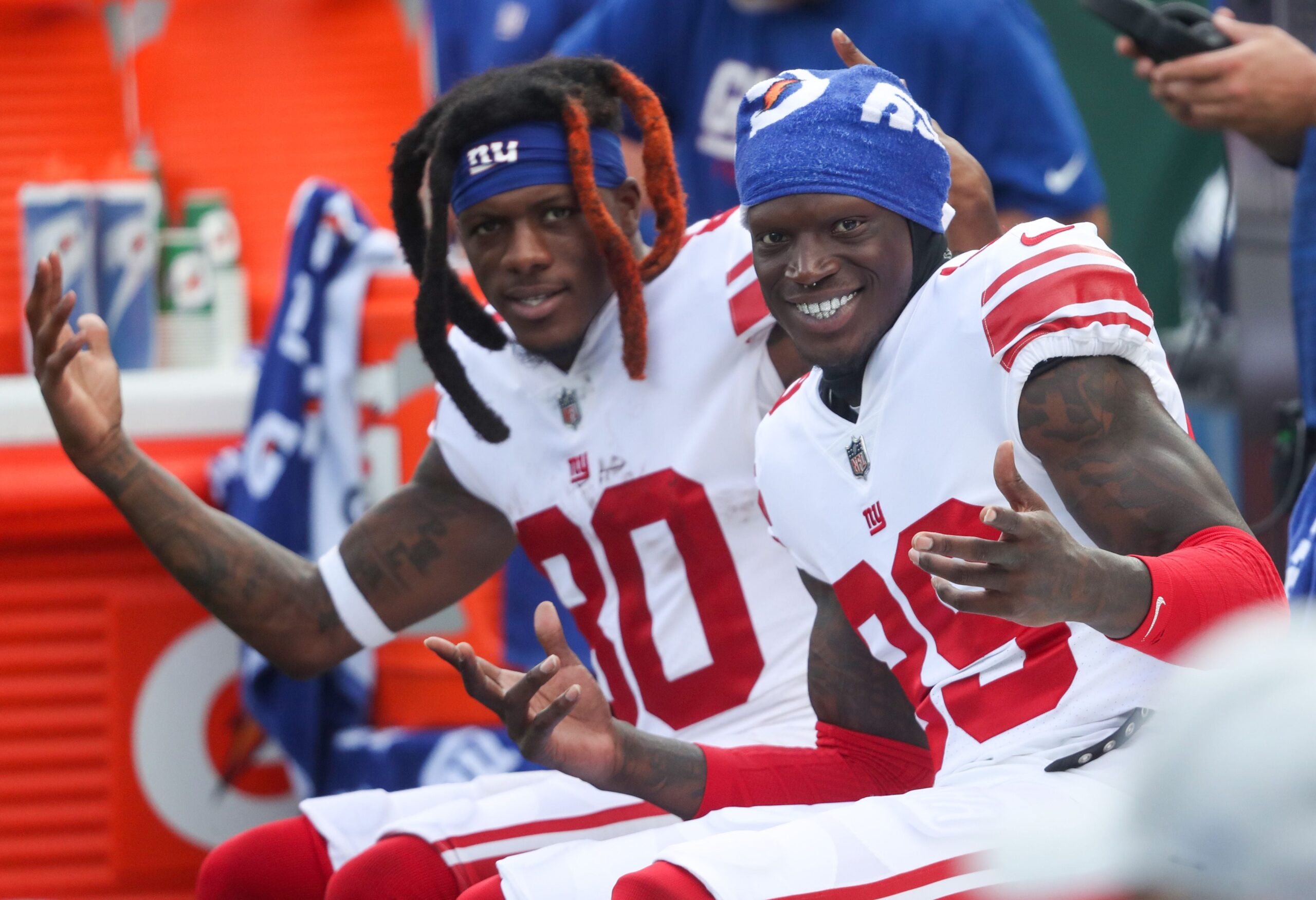
Former Giants wide receiver Richie James says his hairstyle shouldn’t bother anyone: When people judge him because of his hair, “I feel like there’s some sort of racism,” he says. Andrew Mills | NJ Advance Media
Richie James, Kansas City Chiefs
“I get it all the time and I say this all the time. I feel like it’s racist because what does my hair have to do with anything? It’s nothing to do with my character. It’s just an art. That’s all it is — it’s an art.
“There are a lot of people … who I’ve lost a lot of respect for just because they’ve said anything about my hair. I’m going to keep it cordial, but I feel like there’s some sort of racism to that.
“I’ve probably heard it every year I’ve been in the league. I’ve heard it in college, so that’s the reason I’m not cutting my hair. I will never cut my hair now. When people ask me, I just say no.
“I like my hair. It’s who I am. It’s my art, it’s my expression. I don’t know how you can judge someone by their looks. There are guys painting their nails, and you can’t just call them things because they paint their nails. It’s just an expression. Everything is an expression. I don’t understand when people say short hair makes you look more professional, because it really doesn’t.”
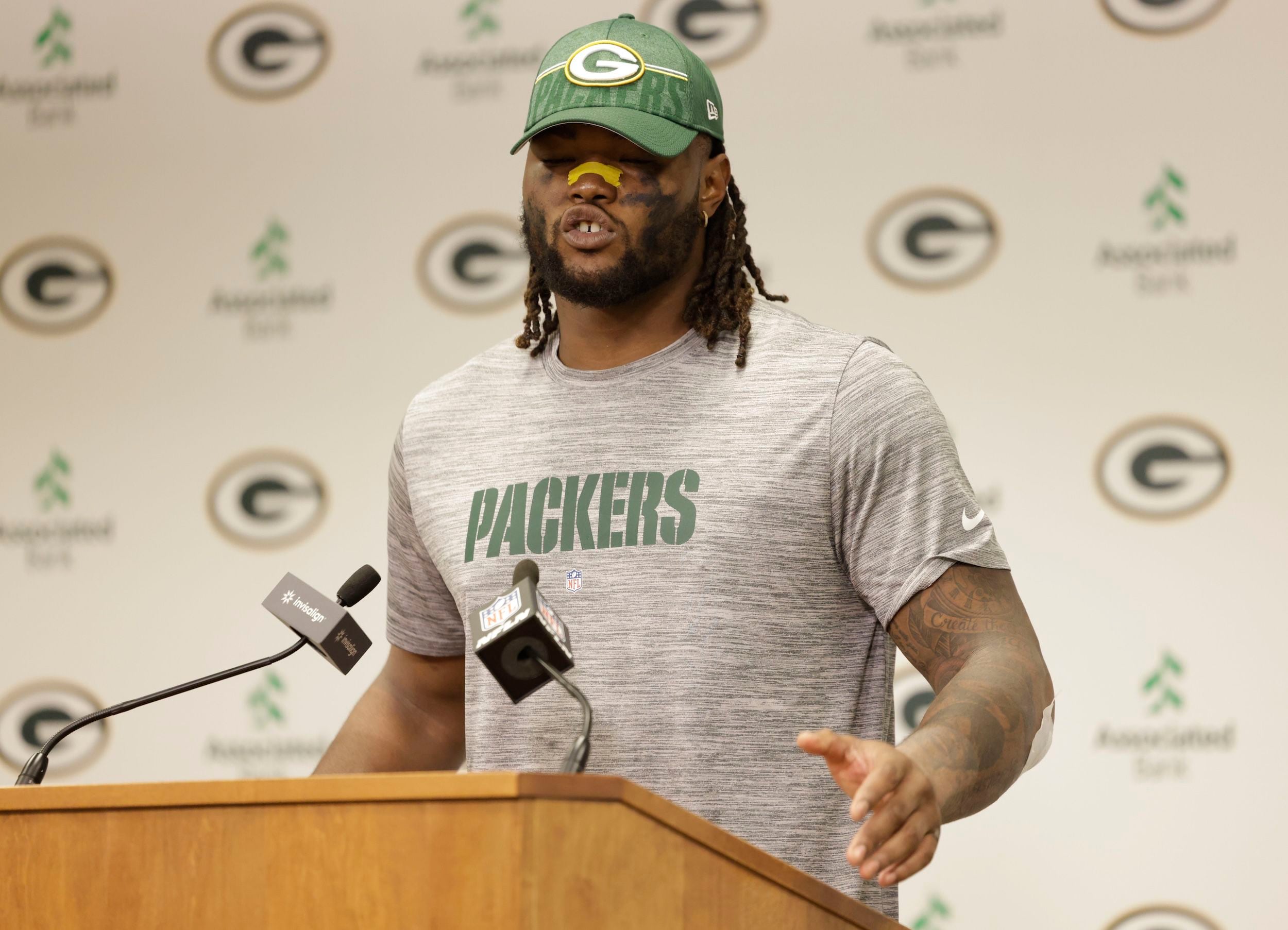
Green Bay Packers’ Rashan Gary says he finds strength in his hairstyle. Associated Press
Rashan Gary, Green Bay Packers
“I have had locs since I was 12, so for 14 years. They mean strength to me. A lot of guys have them, so I guess they mean different things to everyone. I never was given any problem about having them. I remember asking my mom to let my hair grow so I could get locs. … I find strength in them. As they grow, I grow. I have to take care of my hair the same way I take care of my body, and I see positive results from both.”
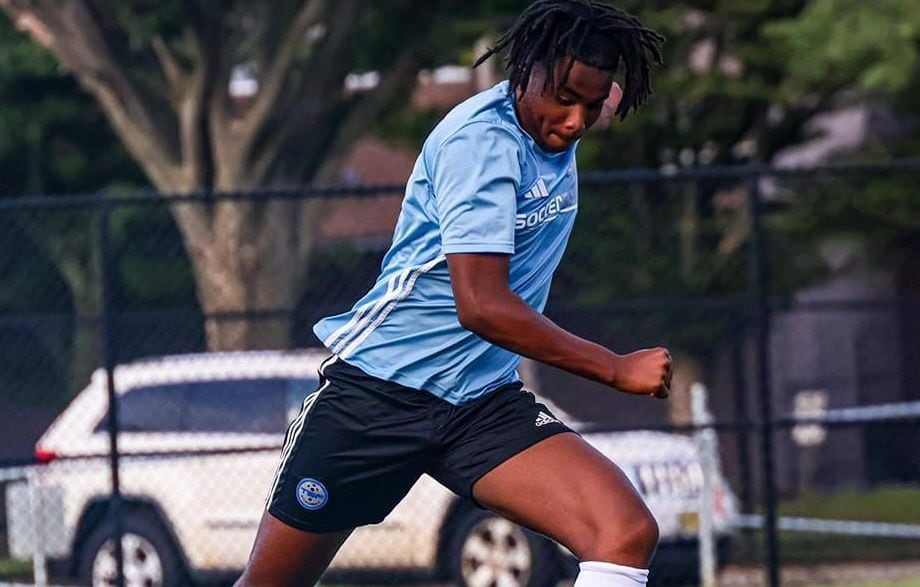
Bobby Lucien says his hairstyle allows him to express himself on and off the field. Photo courtesy of Bobby Lucien
Bobby Lucien, Tristate Football Academy
“It’s the way they feel when I am running around. That’s part of it. But also, being Jamaican may play a part in it. My personality as a soccer player and my personality outside of soccer are completely different. My dreads give me a way to express myself differently both on and off the field. Off the soccer field, I am a more reserved person. I don’t really speak that much. On the soccer field, I am more outgoing and more confident.
“I just keep them out of my face, really. I just know that I can’t have them swinging around while I play. On the soccer field, my hair is usually up. When I’m off the field, my dreads cover my face.”
“I research famous people who have dreads, our ancestors and their connection to their hair. My hair adds to the type of person I am, my personality, and my journey as a human being.”
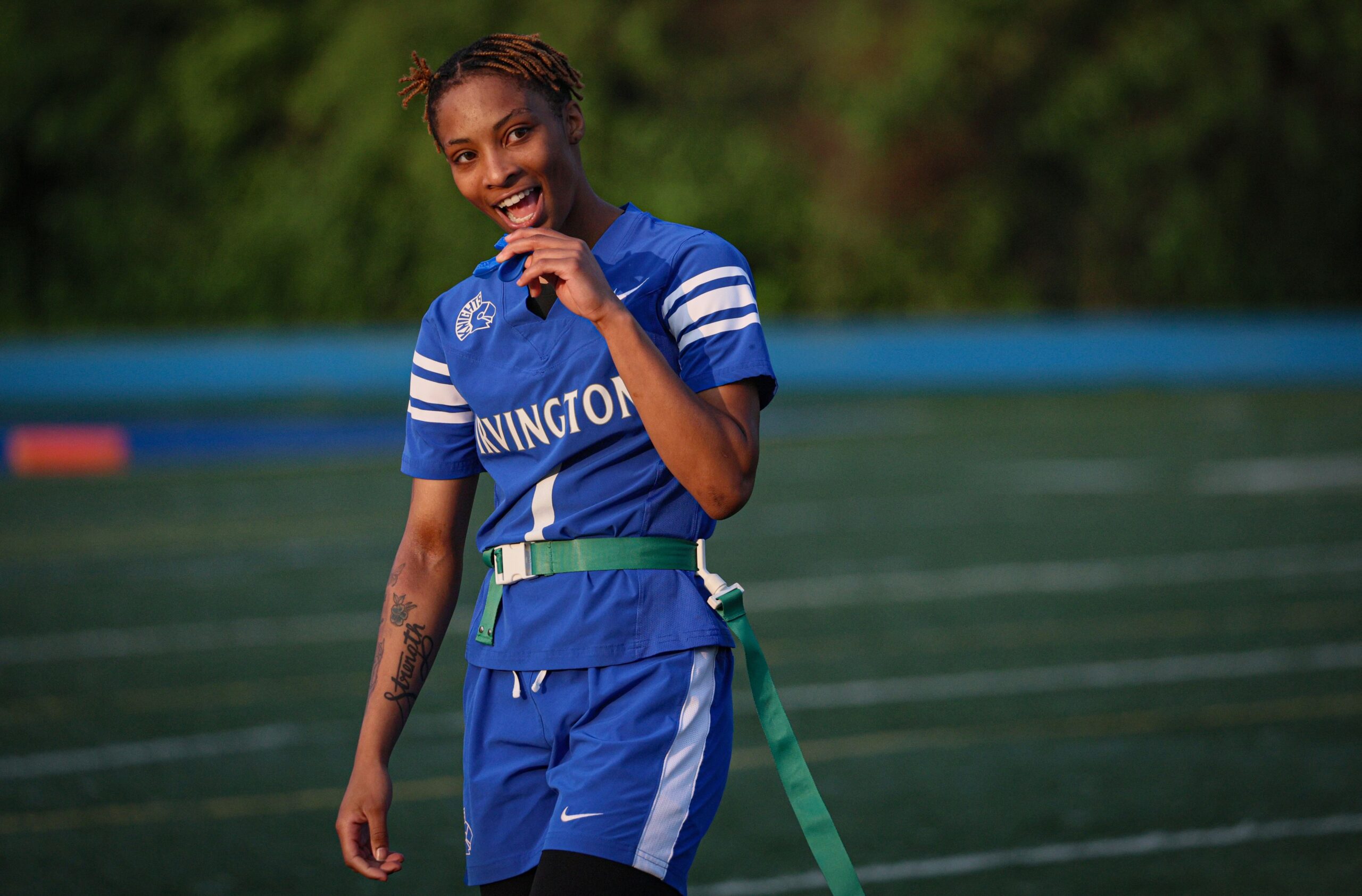
Janasia Wilson, one of the top female athletes in the country, says she wears her hair according to how she feels. Andrew Mills | NJ Advance Media
Janasia Wilson, Irvington flag football All-American MVP, hoops star
“People will question my gender, ask me why I cut my hair, why I have a haircut. I just look at them (as if to say), ‘Because this is what I want to do.’
“My hair means a lot to me. I love keeping it done. I love expressing myself through my hair with different styles. I feel most like myself when I have my hair out. Just curly, just out, just everywhere, to be honest.
“For basketball, I’d rather keep it in braids because I go to the hoop a lot, so I get hit a lot. For football, I’ll leave it out, but sometimes I keep it in braids just so my hair doesn’t get pulled or in the way of anything.
“It all just depends on my mood and how I’m feeling. When I feel like I don’t look good, I don’t play good. So, whatever makes you feel good, like, ‘I’m about to show out on the court or the field,’ do that.”
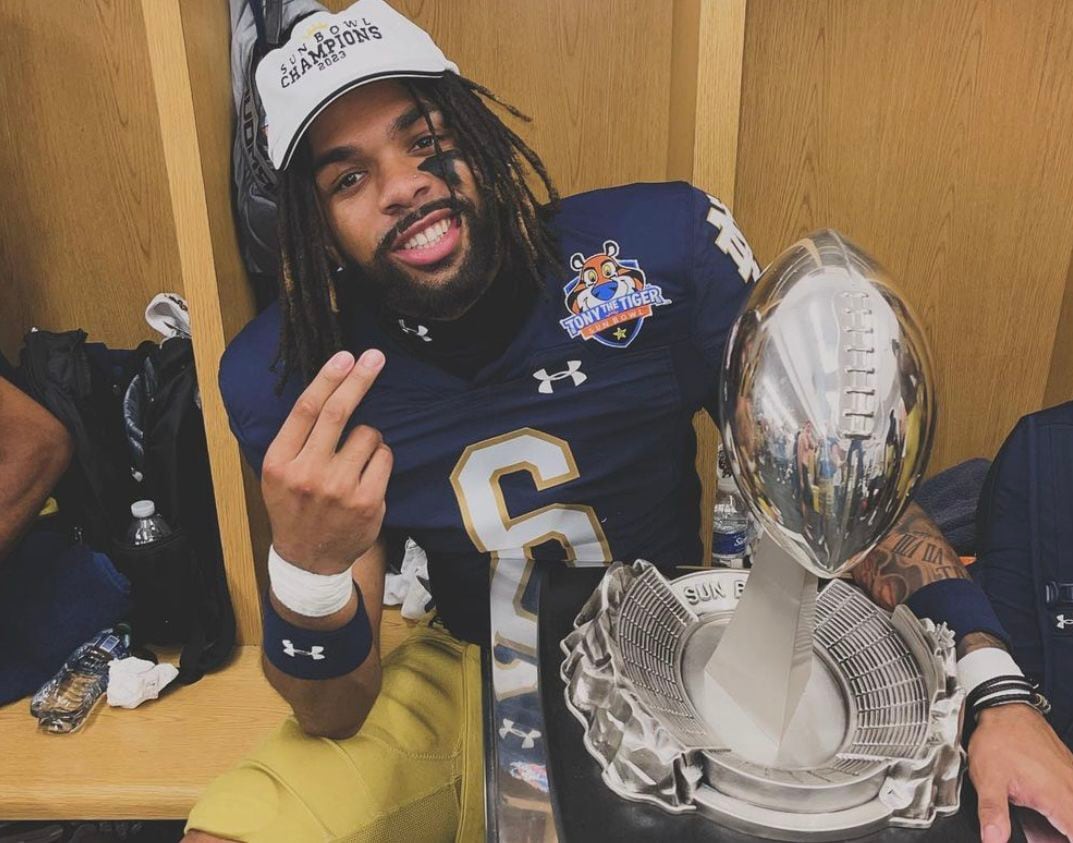
Notre Dame Fighting Irish Sr. DB Clarence Lewis, who now wears locs, likes “the way they come out the back of my helmet.” Photo courtesy of Notre Dame
Clarence Lewis, Notre Dame Fighting Irish DB
“I feel like hair is a key part of how I see myself. Especially having dreads. As Black people, back in the day, it was the high-top fade or Afro. Now, we’ve got dreadlocks. It’s a part of me and what I identify as — a dread-head.
“At first, it was more like free form. I still had an Afro, but the dreads were pretty much making themselves. As they grew, more people asked me if I was going to get a re-twist. But at the time I hadn’t had dreads, so I decided to try them, and have loved them ever since.
“Dreads just fit me. I don’t really know how I would look without dreads. The way they come out the back of my helmet, the way they keep getting longer and longer. It’s something about it.”
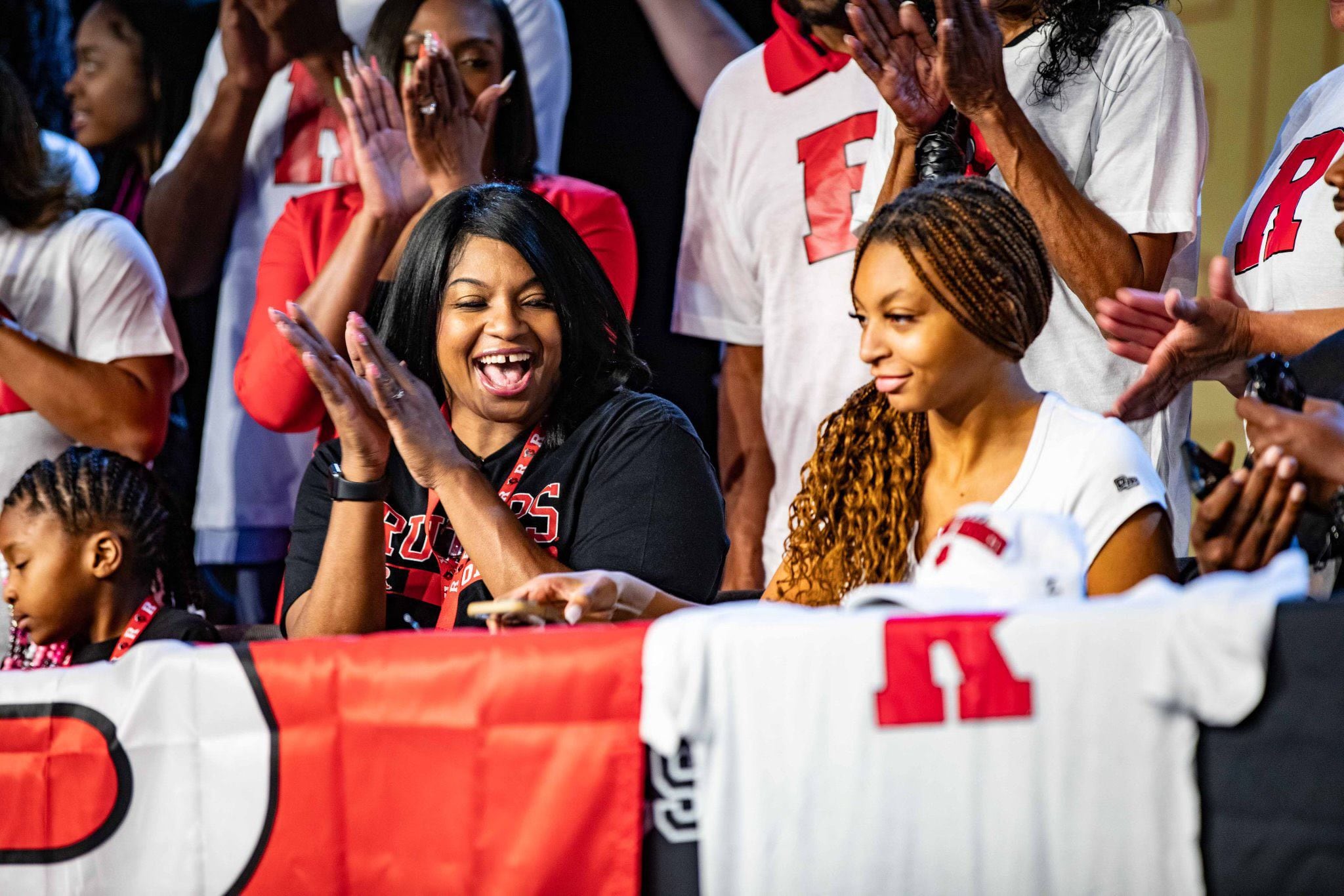
Zachara Perkins, who spent her early years in Katy, Texas, would often be asked to have her hair “touched.” Photo courtesy of DeMya Walker-Wheatfall
Zachara Perkins, 4-star Rutgers women’s basketball commit
“I know in elementary school a lot of kids that I went to school with would ask if they could touch my hair and things like that. At the time I didn’t think it was weird until I spoke to other people about it. Then I realized they don’t ask everyone to touch their hair. They were just asking me.
“(My hair is) something that I appreciate and It’s something that represents my personality. I love my hair. It’s always been something I’ve embraced.
“Slick backs (hair pulled and slicked back with hair grease or gel), ponytails and things like that. Those are my favorites. I just really feel like it stays out of my way, but it’s also still a really cute style for me to wear. I wear braids a lot, too. I love braids.
“My hair definitely plays into my personality, my confidence, and my ability to do things like shoot, make moves, and lay-ups. I’m funny, a little bit quirky, confident. My hair reflects that.”
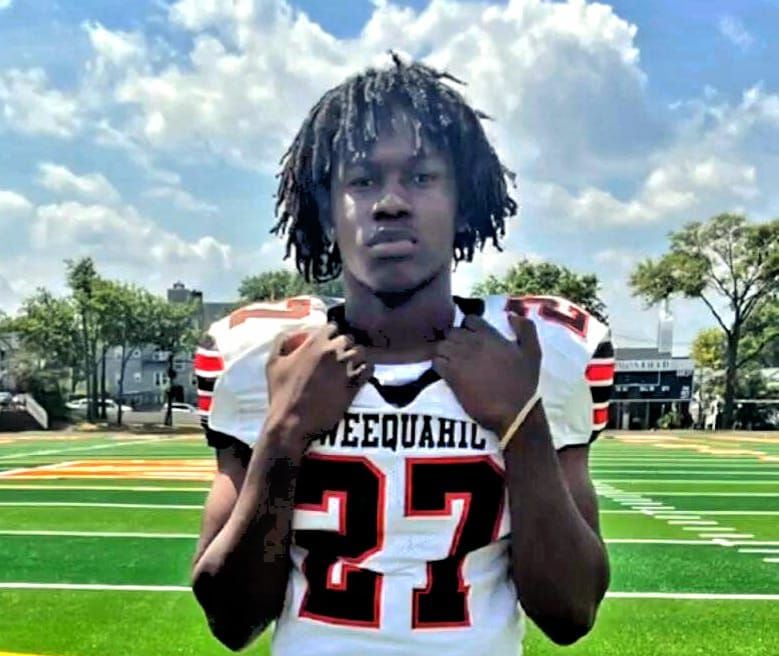
Ibrahim Cisse says he is often treated like a criminal due to his hairstyle. Photo courtesy of Ibrahim Cisse
Ibrahim Cisse, Weequahic High kicker
“On the middle of my head, I have a birthmark — a triangle. My hair doesn’t grow as fast there as other places. So, every time I would get a low cut, you could see it. So, I had kids making fun of me, bullying me. That is part of the reason why I grew my hair out. It wasn’t about following a trend.
“Being West African, people think our hair doesn’t grow or we are peasy-headed. I’m like, ‘No, I’m African and I’m proud of it.’ I only started growing my hair for a year and a half, so my hair grows really fast. I only got my hair done twice ever. And before that, nobody ever touched it. It locked up by itself.
“I’m looking for a job. That’s my biggest thing right now. Managers look at me weird. They make a lot of assumptions based on how I look until they speak to me. Everybody does. But when they take the time, they realize that I’m a whole different person than who they thought I would be.”
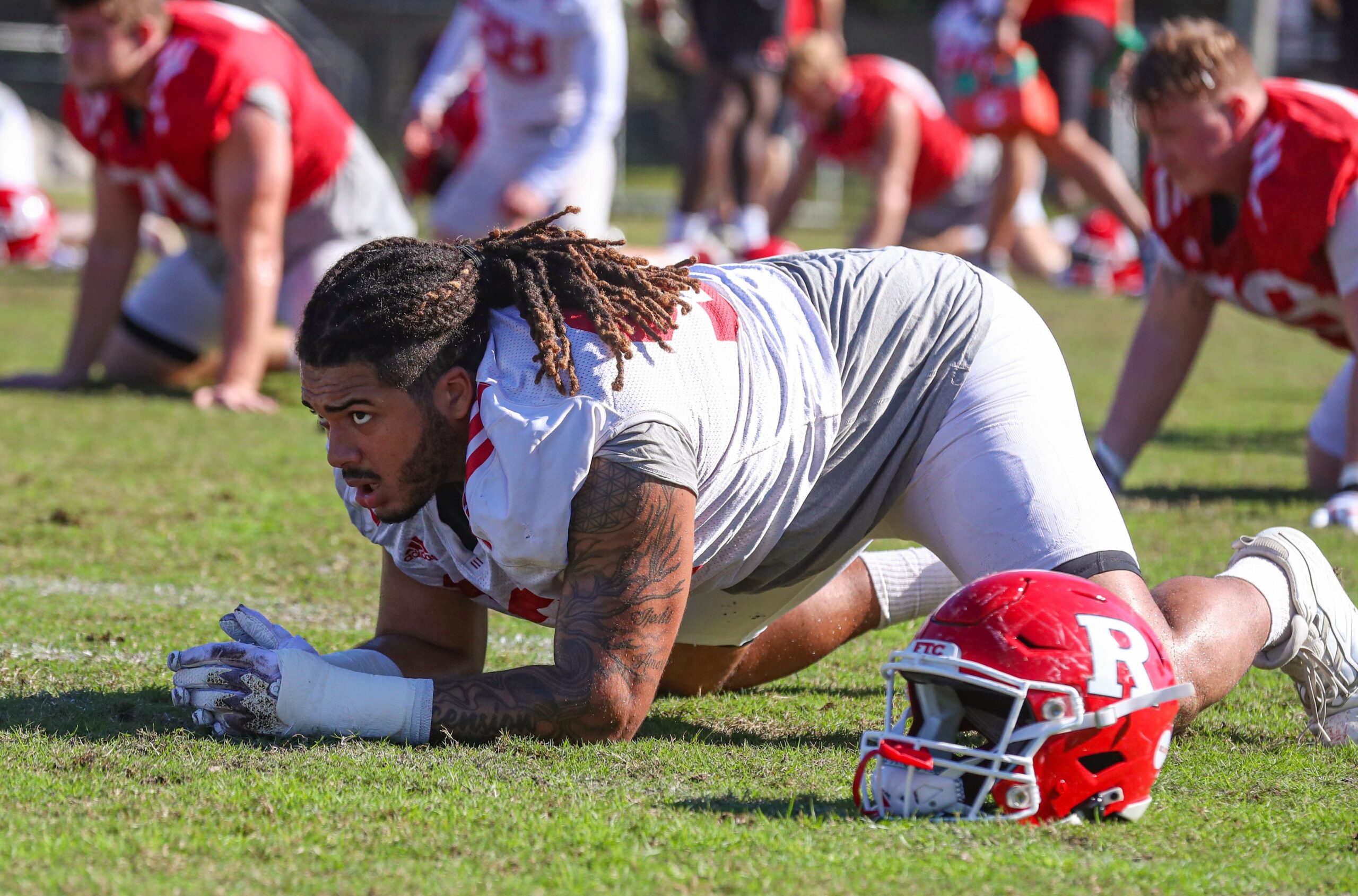
Mayan Ahanotu says his hair tells the story of the journey he’s been on during his athletic career. Andrew Mills | NJ Advance Media
Mayan Ahanotu, former Rutgers defensive lineman
“For the most part, from my experience, it has really just been some passive-aggressive things. My first encounter, when I first started twisting my hair in high school — I went to a private school and there was a rule there that our hair couldn’t touch our collared shirts. So when I first started twisting my hair, and once it finally got to that length of touching my collared shirt, some administration people would try to push me to cut my hair, just making sure it’s not touching the collar. That’s when I really started realizing like, ‘Oh, OK, I see what’s happening here.’ And it’s more than just hair.
“My hairstyle carries a lot of memories, a lot of the journey that I’ve been on in my athletic career and just my life in general. So that’s why I have it and that’s why I keep it the way it is, because it tells a story and it’s told the story of my life.
“I don’t really see what the issue is with people having their hair a certain way. If it’s not giving them an advantage in the competition, then I don’t think there should be a problem with it.”
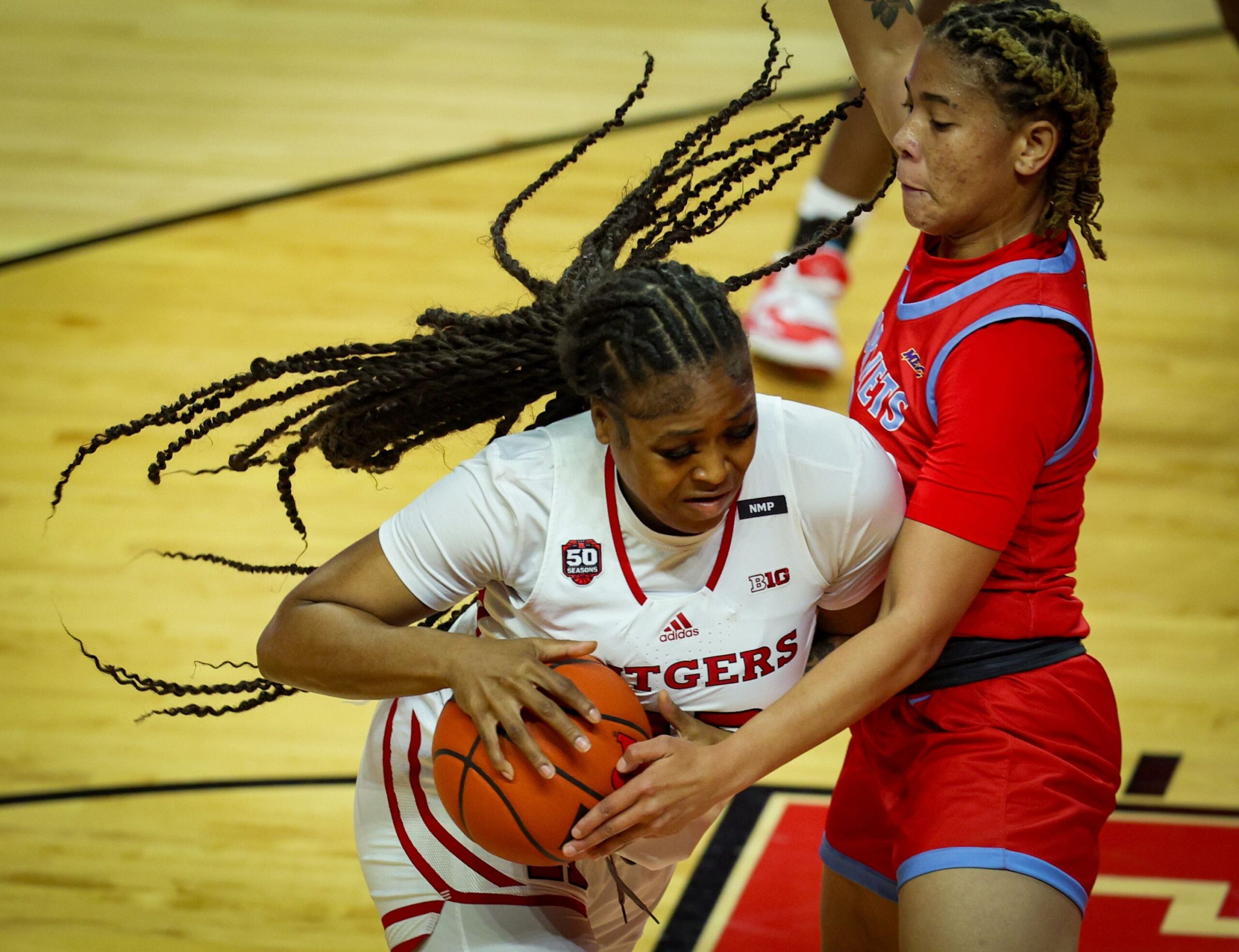
Rutgers’ Kassondra Brown says that Black people “use our hair to express ourselves and to show who we are.” Andrew Mills | NJ Advance Media
Kassondra Brown, Rutgers women’s basketball player
“In the Black community, we use our hair to express ourselves and to show who we are, especially nowadays with all the different styles that are available to us. … A lot of people, even if they are not African-American, express themselves through dying their hair, through different styles, so I feel like regardless of race, everyone wants to make their own decisions about what they do with their hair. I don’t think it’s right for them to feel pressure to have to cut their hair or make it look a certain way just to be able to compete or do certain things.
“When I look good, I feel good. That is basically what I tell myself, so when my hair looks good, and especially in the Black community, the first thing a lot of people look at is their hair … and it has a lot to do with confidence and just overall quality of life. For me, I am big on hair.
“You want people to look at you and say, ‘Oh, I like her hair.’ So that it is what I think about, and also I just want to look good for myself, not just for other people, but it is just big when it comes to expressing yourself.”
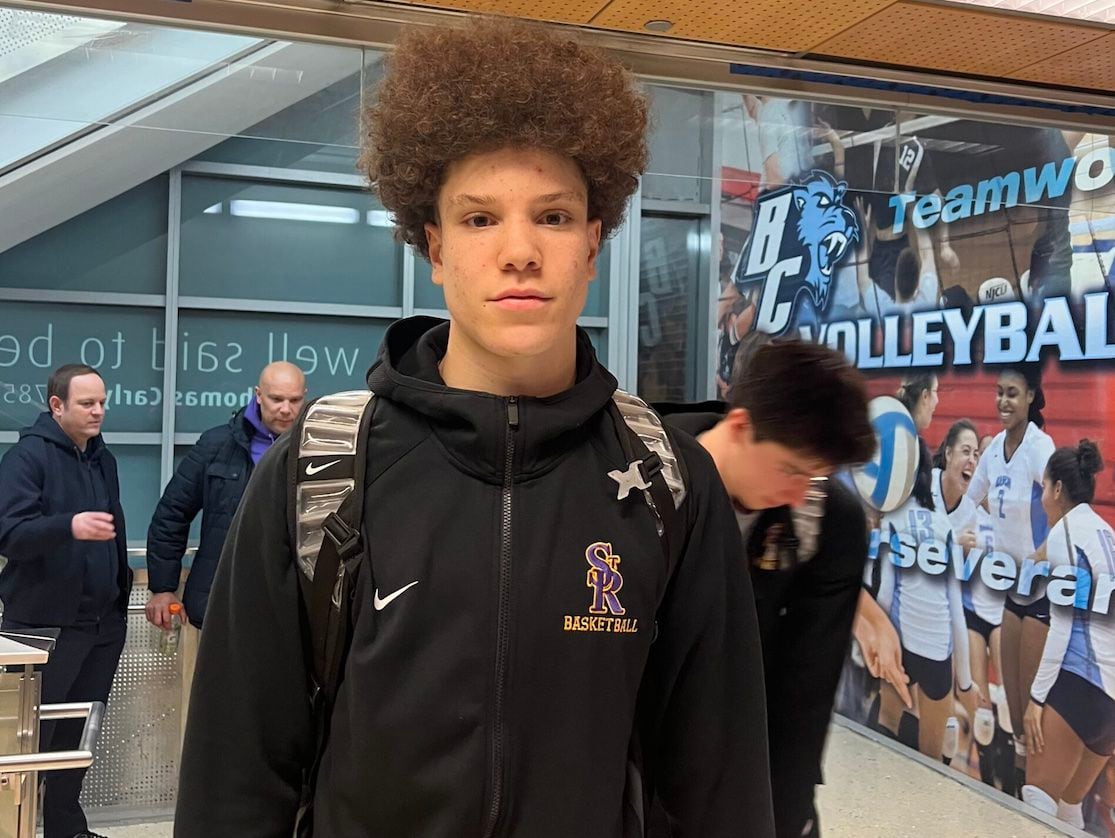
Jayden Hodge says all people should be able to wear their hair however they choose, without any questions. Adam Zagoria for NJ Advance Media
Jayden Hodge, St. Rose High basketball player
“I just feel like my hair is important to me because sometimes with all my curls, it helps with not feeling as cold on my head. It’s the hair I got from my family, and I want to thank them for that. I never got discriminated [against] for my hair but I use a lot of things to take care of my hair and people ask me all the time why I use so many products or why I wear a durag (a snug-fitting cloth tied around the head to hold down and style the hair), and I feel like people should be able to wear and do that without any questions.”
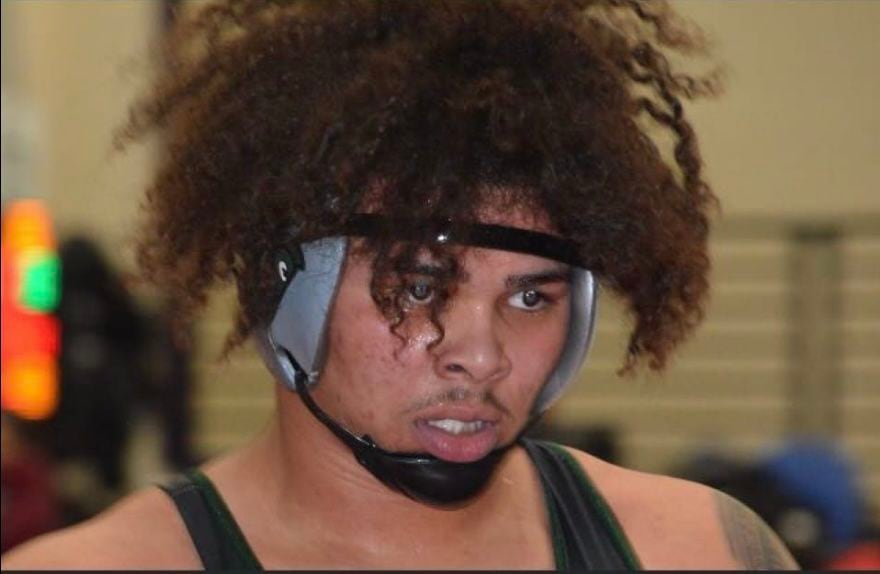
DeShon Alexander wonders why hair would be an issue when athletes are doing what they love — competing. Photo courtesy DeShon Alexander
Deshon Alexander, Overbrook High and college wrestler
“When I was wrestling, (Andrew Johnson) ended up having to cut his dreads on the mat. That was tough for me, so I had to start braiding my hair and finding different techniques or whatever it may be because I did have those refs that would try to say, ‘You can’t have this hair. Why haven’t you cut it yet?’
“There were some people who would try to pull my hair, and the ref would act like he didn’t see it, or say it was my fault for having that hairstyle. I always went through adversity to try to be different because I didn’t want to be the average Joe. I switched my hair from long to curly to braids to dreads, to corn rows — I did everything. There was no telling me to cut my hair.
“It was a lot of uproar with the hair. One thing I never understood is why our hair, or how we feel like representing ourselves, would come into play when we are doing what we all love doing — playing a sport and trying to give it our all. It feels like they were trying to deface us.”
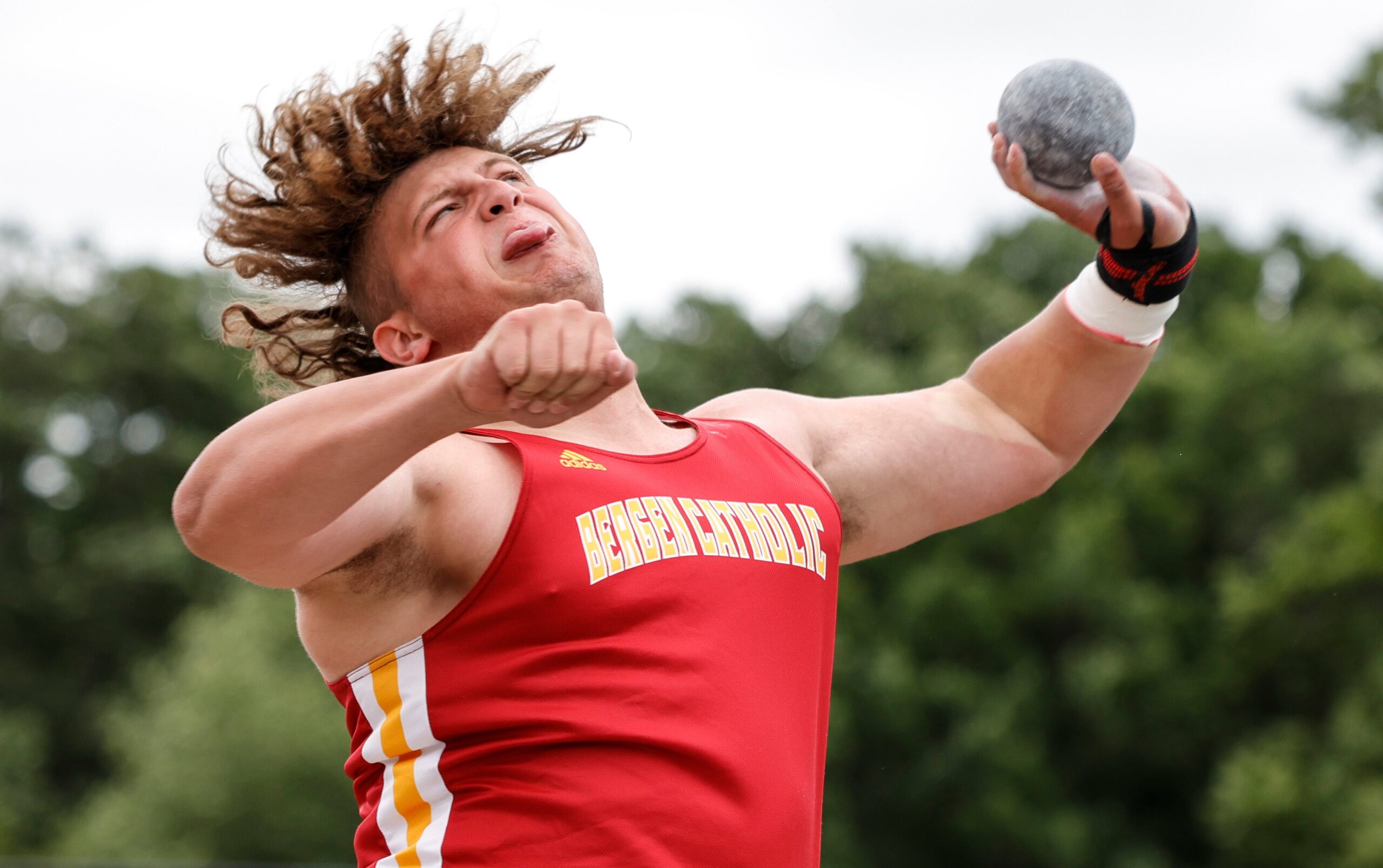
Benjamin Shue’s mullet hairstyle is “business in the front, party in the back.” Chris Faytok | NJ Advance Media
Benjamin Shue, Bergen Catholic wrestling, track & field, and football
“My hair helps me stick out. The crazy, curly hair, the mullet. It’s more common today, but being a bigger guy with hair cut like this is more uncommon. My mohawk is business in the front, party in the back. It’s good fun, but I’m also serious.”
“Going to Bergen Catholic, you obviously need to keep the right hair length, but I haven’t received much pushback, really.”
“So, in ninth grade, the Covid year, my dad made a bet that if I got corn rows or braids in my hair for a month, he would give me money because he wanted to see it so bad. So, I did it. From the top to the back, it was weaving. It was kind of weird. I think I wore a hat half the month.”
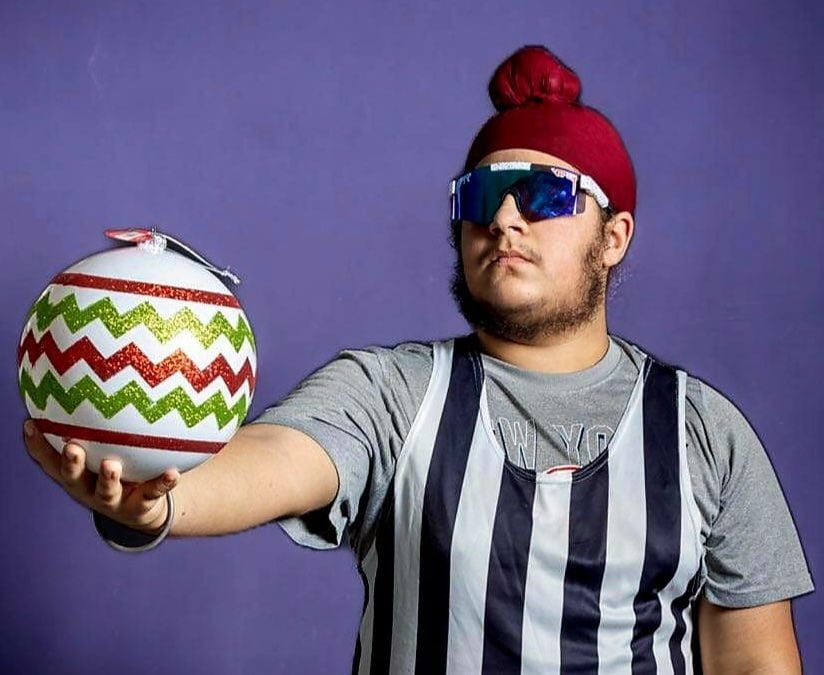
Sehej Kholi says racism that he faced as a Sikh because he wore a turban made him cry as a youngster. Photo courtesy of Sehej Kholi
Sehej Kholi, Old Bridge High football DE, track and field thrower
“In my religion, which is Sikhism, our Gurus, who are basically our leaders, teach us to grow our hair as a sign of virtue and cleanliness and a way to express ourselves and not having to change who you are just to look good or to impress people.
“My hair is a symbol of who I am. When I step on the field, I’m easy to find. It helps me stand out in a crowd which is the meaning of my hair.
“My hair goes all the way down my back. For football, when I was little, I used to put it in a braid and it would go underneath my shoulder pads. So it wouldn’t be out really. When I began playing high school football, I wore it how I usually wear it under my turban. Somehow I was able to fit it under my helmet, so I didn’t have to change much.
“If you are willing to understand who I am and why I wear my hear this way, then I respect you. But, if you are just being ignorant, I can’t respect that.”
“Growing up, people would call me a towel head because I would wear a turban and stuff like that. Since 9/11 people think that all of my people have done stuff like that.
“When I was younger, I used to feel sad about it. I used to cry about it sometimes. As you grow older, you are susceptible to it, but you build kind of a block. You are like, ‘OK, just say whatever you want to say. I don’t care.’”
Our journalism needs your support. Please subscribe today to NJ.com.
Reporters Bob Brookover, Joey Chandler, Adam Zagoria and Brian Fonseca contributed to this report.
Todderick Hunt covers Sports and Culture. Do you have a story idea or a tip? He can be reached at thunt@njadvancemedia.com.
This post was originally published on this site be sure to check out more of their content.




